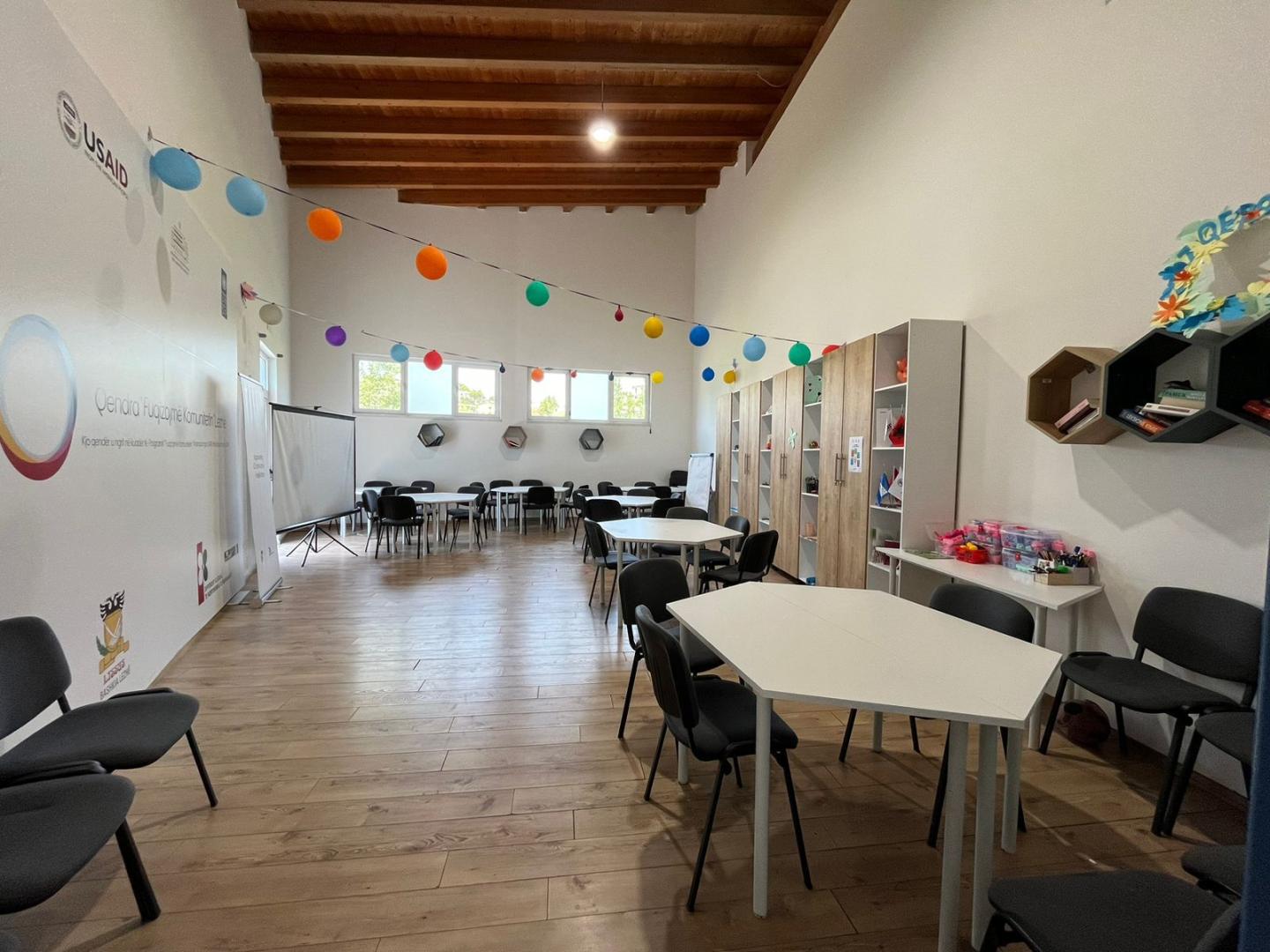UNDP Albania
The Resilience Center: A House of Hope in Lezha
July 17, 2024

The Resilience Center in Lezha is always alive with activity. Grandmothers gently hold their grandchildren’s hands, mothers lovingly guide their children, and women from remote areas arrive, seeking essential services they desperately need. As you walk through the bustling rooms, you witness the profound impact of these vital services—services that others often take for granted but serve as a lifeline in moments of greatest need.
At the playground, I saw a boy resisting as the time for his therapy session approached. He was having so much fun and didn’t want to leave. Soon, I learned he is a child with autism who comes here three times a week, accompanied by his grandmother and mother. Intrigued, I spoke with them to learn how much the center is helping their beloved child.
“He used to be so withdrawn,” his grandmother shared, her voice trembling with emotion. “We didn’t know how to help him. We struggled to find and afford the right therapy for K.,” his mother explained. “Here, he receives speech therapy five times a week, and we’ve seen incredible progress. He’s starting to communicate more, and his aggressive behaviors have significantly reduced. This place has given us hope. It is a blessing for our family.”
Established in February 2024, the Resilience Center in Lezha has already supported 164 women, men, and children, offering a comprehensive range of specialized services. These services address various issues, from economic and social challenges to psychological support, making a profound impact on the lives of those they help.

In one of the private consultation rooms, I met M.K., a 31-year-old mother of two, who shared her story: “After divorcing my abusive husband, I was left with nothing. No financial support, no child support. This center has been a godsend. They provide us with rental bonuses, food packages, clothing, and hygiene items. My daughters attend the After-School Program here, and I see them thriving. They’re happier, more engaged, and it gives me peace of mind knowing they’re in good hands.”
The center provides a safe haven for women like M.K., offering them not only emotional support but also practical assistance, such as legal advice and housing support, to help them regain their independence and dignity.
The psychological services extend beyond victims of domestic violence. In a brightly lit room filled with colorful drawings, I met the psychologist of the center. “Many people here have faced significant trauma,” she explained. “Our goal is to provide a safe space for them to heal and grow. We offer individual and group therapy sessions, addressing issues like depression, anxiety, and nightmares.”
L.V., a 39-year-old woman seeking psychological support, described her experience: “Losing my son and dealing with my husband’s alcoholism left me in a dark place. Coming here was the first step towards healing. Psychological support has been invaluable. I’m learning to cope with my grief and rebuild my life. The staff here are like family to me.”
The center also offers specialized on-site and mobile services, including physiotherapy and speech therapy for persons with disabilities. These services are crucial for families who cannot afford or access such treatments elsewhere.

The after-school programs for children are another cornerstone of the center’s offerings. In a room buzzing with activity, children engage in various educational and recreational activities. Laughter and chatter filled the air, a testament to the safe and nurturing environment created here.

I spoke with Ledia, a mother whose two children attend the after-school program. “This center has been a great support for my children. Here they receive help with their homework, participate in fun activities, and have made new friends. It’s a place where they feel valued and supported.”
For teenagers and young adults, the center organizes activities aimed at personal development and social integration. In a youth club meeting, I met Erion, a 17-year-old who had faced numerous challenges, including social exclusion.
“Before coming here, I felt lost and hopeless,” Erion admitted. “The activities and workshops have given me a sense of purpose and direction. I’ve learned new skills, made friends, and gained the confidence to pursue my dreams.”
Beyond direct services, the center actively engages in awareness and advocacy efforts to address community issues, including gender-based violence. Through workshops, campaigns, and community events, the center fosters a culture of awareness and change.
At a recent community event, I spoke with Jonida, a local advocate working with the center. “Changing societal attitudes is a slow process, but it’s essential for lasting change,” she emphasized. “Through our efforts, we’re not only supporting individuals but also creating a more inclusive and compassionate community.”
The Resilience Center in Lezha tells a powerful story of the transformative power of integrated social services. Established under the “Improving Community Resilience” program, funded by USAID and implemented by UNDP in partnership with the Municipality of Lezha and the organization “Different & Equal,” the center stands as a pillar of hope and support for those in need.
As I left the center, the impact of its work was undeniable. It is a place where resilience is nurtured, hope is restored, and lives are rebuilt.

 Locations
Locations



